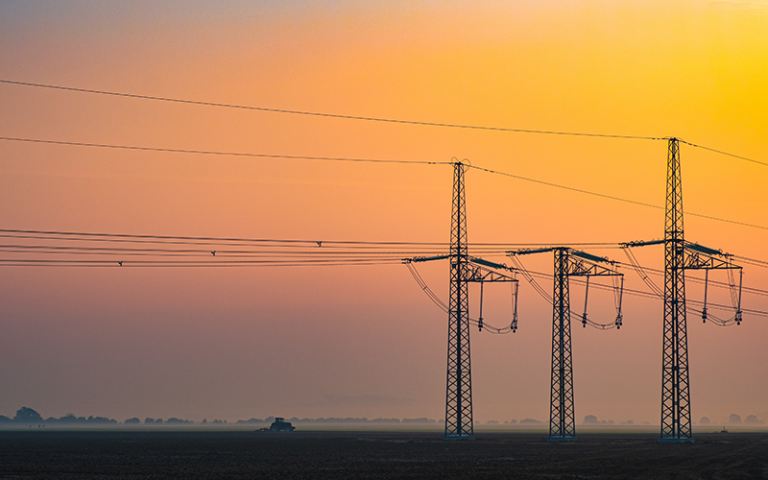New UCL report informs Ofgem on electricity trading with EU – technical summary
21 February 2020
UCL Institute for Sustainable Resources have published an influential research report examining a number of aspects of cross-border electricity trading between Great Britain (GB) and connected European Union (EU) markets—including various ones which could be impacted by Brexit.

The 178-page report, titled ‘The Value of International Electricity Trading’, was commissioned by British energy regulator, Ofgem, and produced in collaboration with the University of Cambridge. The report was extensively cited by Ofgem in their flagship report ‘State of the Energy Market’.
Authors of the report from UCL Institute for Sustainable Resources and UCL Energy Institute are: Dr Giorgio Castagneto Gissey, Prof Michael Grubb, Prof Paul Ekins OBE, Dr Paul Dodds, Guy Lipman and Luis G. Montoya.
Read the ISR news story about the report.
The value of interconnectors
The research examines the efficiency and value of electricity trading between GB and interconnected electricity markets, over timescales ranging from year-ahead to intra-day, between 2013 and 2018. This is a period in which markets introduced increased levels of ‘coupling’, a mechanism in which available interconnector capacity is taken into account when determining electricity prices in each market. The researchers found that:
- The EU policy of market coupling has improved the efficiency of trading across GB borders.
- The total commercial value of GB’s largest interconnectors – those with France and the Netherlands (IFA and BritNed) – is substantial, with a combined value estimated at €505 million/yr, including the value of the capacity contribution to security of supply.
- The Single Electricity Market of the island of Ireland was coupled in October 2018 and since then the interconnector has been used efficiently (before coupling, electricity between GB and Ireland flowed in the wrong direction almost half the time).
- If the GB market uncoupled, establishing at least day-ahead and intra-day platforms for electricity trading over the interconnectors could reduce trading inefficiency, but would be unlikely to capture all of the benefits of coupling.
Impact of GB’s Carbon Price Support (CPS) on wholesale electricity trading
The report also investigates the impact of unilaterally taxing carbon emissions in one country trading electricity with other connected countries. In 2013, GB implemented a unilateral carbon tax—the Carbon Price Support (CPS)—not replicated by its European neighbours.
The policy has been instrumental in reducing carbon emissions in the electricity sector, leading to an unprecedented reduction in coal generation.
However, a higher carbon price leads to higher GB wholesale prices and greater cross-border price differentials, affecting cross-border trade. Key findings from this part of the report include:
- The CPS has been a widely successful policy as it dramatically reduced coal generation (by 93% so far). Following an increase of the CPS to £18/tonne CO2 in 2015 the share of coal in total generation fell from 41% to 7% in 2018.
- The actual price differential with our neighbours (France and the Netherlands) increased by €8/MWh. This results from GB using more expensive but cleaner electricity and is somewhat reduced by allowing domestic generation to be replaced by cheaper imports.
- The CPS added £740 million/yr to British households’ electricity bills in 2018. A portion of it is also passed through to foreign electricity prices.
- The CPS increased GB imports by 13 TWh/yr, thereby reducing carbon tax revenue by €103 million/yr.
- An EU-wide carbon price would substantially reduce EU emissions from the electricity sector. It would also correct trade and investment incentive distortions.
International electricity trading efficiency and value of market coupling
The report also examines how market coupling has affected the relationship between electricity flows and price differentials between GB and interconnected markets.
It provides and validates new methods to measure how efficiently electricity is traded across borders. In this part of the report, the researchers found that:
- After the introduction of day-ahead market coupling, there was a decrease in trading inefficiency between GB and France from 5% in 2013 to <1% in 2018, and between GB and the Netherlands from 11% in 2013 to <4% in 2018.
- During 2015–2018, an uncoupled GB market (without making use of other market contracts) would have led to an increase in inefficient trading between GB and France from <1% to >10% and with the Netherlands from 4% to 8%.
- The impact of market uncoupling decreases as the average price differential grows. With prices closer together, market uncoupling could more easily change the volume of trade flows. However, the cost of the trade inefficiencies caused by uncoupling would be reduced as the price differences and hence congestion revenues would also decrease. Inefficient trading decisions are less likely when price differences are larger.
The results in this report have wide implications for cross-border electricity trading and interconnector use; the way in which electricity trading efficiency is measured; and the impact of carbon pricing on electricity trading between countries.
Read the report
- Read the Ofgem report – ‘The Value of International Electricity Trading’
- Read the report annex – ‘Impact of Carbon Price Support on British Energy Bills’
 Close
Close

